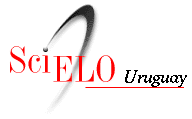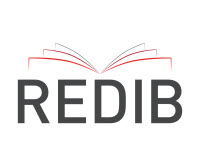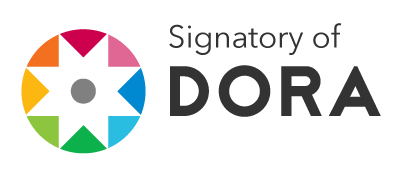La internacionalización de la enseñanza y la investigación en Ética de la Información
una revisión posterior a 2018
Resumen
El Centro Internacional para la Ética de la Información (ICIE), fundado en 1999 por el filósofo uruguayo Rafael Capurro, ofrece una plataforma global para la colaboración en enseñanza, producción de documentos y práctica de la ética de la información. Por más de dos décadas, ICIE ha liderado y sostenido iniciativas, publicaciones and eventos académicos sobre tópicos críticos de las culturas de la información en la era digital, tratando todo lo relacionado con desviaciones éticas de los algoritmos y los robots respecto a la ciencia de la información tradicional. A través de la formación internacional y la colaboración intercultural, ICIE ha establecido su bien ganada reputación como la voz de liderazgo en ética de la información alrededor del mundo. El legado más importante de ICIE reside en su temprano y duradero apoyo de colaboración con la Red Africana para la Ética de la Información (ANIE) y el Centro Africano de Excelencia para la Ética de la Información (ACEIE). El artículo es una reflexión sobre el rol y la influencia de ANIE desde 2007 y del ACEIE desde 2012, a través del apoyo de ICIE en favor de la internacionalización de la ética de la información en África. Se mostrará que el enfoque de ACEIE que da fundamento al desarrollo de las culturas de la información a través de África proporciona a ICIE el marco teórico y la estructura necesarios para anclar su amplio foco académico en un entendimiento auténtico respecto a los sistemas de valores y formas de vivir no solo de los africanos, sino de la gente alrededor del mundo.
Descargas
Citas
ACEIE (2011). Official memorandum of agreement between the University of Pretoria and the South African National Department of Communication, signed on 15 December 2011. Pretoria.
ACEIE (2013). 2012 Annual Report. March 2013. African Centre for Excellence of Information Ethics.
ACEIE (2014). 2013 Annual Report. March 2014. African Centre for Excellence of Information Ethics.
ACEIE (2015). 2014 Annual Report. March 2015. African Centre for Excellence of Information Ethics.
ACEIE (2016). 2015 Annual Report. March 2015. African Centre for Excellence of Information Ethics.
ACEIE (2017). 2016 Annual Report. March 2016. African Centre for Excellence of Information Ethics.
ANIE (2007a). Conference Report: The Joy of Sharing Knowledge. Pretoria.
ANIE (2007b). Tshwane declaration on Information Ethics in Africa. Adopted on 7 February 2007 at Africa Information Ethics Conference. Pretoria. RSA.
ANIE (2009). Report on UNESCO Information ethics and e-governance in sub-Saharan Africa workshop. Magaliesburg, RSA.
ANIE (2010). Africa Information Ethics: The Road Ahead. Conference Report. University of Botswana, 6-7 September 2010. Gaborone, Botswana.
ANIE (2012) Conference. Conference Report. University of Pretoria. Pretoria. Republic of South Africa.
Bester, C and Bothma, R. (2013). Chronological discussion of ANIE events 2007 – 2012. Unpublished article. African Centre of Excellence for Information Ethics. University of Pretoria. Pretoria. RSA.
Bester, C., Malan, B.M. (2015). Digital Wellness Toolkit. African Centre of Excellence for Information Ethics. Group 7 Publishers. Pretoria.
Brannigan, M. C. (2005). Ethics Across Cultures with Power Web Ethics. McGraw-Hill
Britz, J. J. (2004). Africa and its Place in the Twenty-First Century: A Moral Reflection. In: Mendina, T. and Britz, J. J. (Eds): Information Ethics in the Electronic Age. Current Issues in Africa and the World. North-Carolina. McFarland, 5-6.
Britz, J. J. (2007). The joy of sharing knowledge: But what if there is no knowledge to share? A critical reflection on human capacity building in Africa. Published in the Africa Reader on Information Ethics (page 15 to 22). ISBN: 978-0-620-45627-2. Department of Information Science. University of *Pretoria. South Africa. First electronic edition: 2007, First printed edition: 2012.
Britz, J. (2013). Understanding information ethics. Information ethics in Africa: Cross-cutting themes, 1-6.
Capurro, R. (2007). Information Ethics for and from Africa. The International Review of Information Ethics, 7, 6-17.
Capurro, R. (2008). Intercultural information ethics. The handbook of information and computer ethics, 639.
Capurro, R. (2013). Information ethics in the African context. Information Ethics in Africa: Cross cutting themes, 7-20.
Capurro, R., Britz, J. J., Bothma, R., Bester, C. (2007). Foreword. Africa Reader on Information Ethics, 3-14. Department of Information Science. University of Pretoria. South Africa. available online at https://www.up.ac.za/african-centre-of-excellence-for-information-ethics/article/2087835/books. First electronic edition: 2007, First printed edition: 2012. ISBN: 978-0-620-45627-2.
Castells, M. (2000). The Rise of The Network Society: The Information Age: Economy, Society and Culture. Volume 1. Retrieved from https://books.google.pt/books/about/The_Rise_of_The_Network_Society.%20html?id=hngg4aFtJVcC&pgis=1
Ess, C. (2007). Cybernetic pluralism in an emerging global information and computing ethics. In: Capurro, R., Britz, J. J., Bothma, T. J. D. & Bester, B. C. (Eds). Africa Reader on Information Ethics. 91-114. Pretoria. Department of Information Science: University of Pretoria. 91-114
Ess, C (2009). Digital Media Ethics. Cambridge. Polity Books.
Fischer, R., Malan, B. (2019). The Development of the Digital Wellness Toolkit. In: Proceedings of the 12th ICEGOV conference on Theory and Practice of Electronic Governance. Published by ACM Press.
Frohmann, B. (2007). Assembling an African Information Ethics. International Review on Information Ethics (IRIE). Vol. 7.
International Center for Information Ethics. (2020). Artificial Intelligence for Information Accessibility Retrieved from https://www.i-c-i-e.org/inclusive-ai (2020, September 23).
International Center for Information Ethics. (2019). ICIE Curriculum Consortium for Information Ethics. Retrieved from https://www.i-c-i-e.org/courses (2019, July 02)
International Center for Information Ethics. (2020). Mission & Goals. Retrieved from https://www.i-c-i-e.org/missions-and-goals (2020, September 3).
IEEE Global Initiative on Ethics of Autonomous and Intelligent Systems. (2017). Ethically Aligned Design: A Vision for Prioritizing Human Well-being with Autonomous and Intelligent Systems, Version 2. IEEE, 2017. Retrieved from https://ethicsinaction.ieee.org/
Löwstedt, A. (2007). Cultural extinction as an aspect of current globalization trends. African Information Ethics Conference. Pretoria, RSA. 5-7 February 2007
Malan, B.M., Bester, C. (2014). Curricuulum to teach Information ethics at universities in Africa. Pretoria. African Centre of Excellence for Information Ethics. University of Pretoria. Pretoria. RSA.
Meshabi, M. (2007). The Third World and the paradox of the digital revolution. In: R. Capurro, J.J. Britz, T.J.D. Bothma and B.C. Bester (eds). Africa Reader on Information Ethics. Department of Information Science. University of Pretoria. Pretoria. pp 39-42
Msuya, J. (2007). Challenges and opportunities in the protection and preservation of indigenous knowledge in Africa. In Capurro, R., Britz, J. J., Bothma, T. J. D. & Bester, B. C. (Eds). Africa Reader on Information Ethics. Department of Information Science. University of Pretoria: 343-349.
Mutula, S. M. (2004). Making Botswana an information society: current developments. The Electronic Library, 22(2): 144–153. http://doi.org/10.1108/02640470410533407
Mutula, S. M. (2008). Digital divide and economic development: case study of sub Saharan Africa. The Electronic Library, 26(4):468–489. http://doi.org/10.1108/02640470810893738
Mutula, S. M. (2013). Ethical Dimensions of the Information Society: implications for Africa. In: Ocholla, D. Britz, J.J., Capurro, R., Bester C. (Eds). Information Ethics in Africa: Cross-cutting Themes. 29-43.
Ocholla, D.N, (2007). Marginalized Knowledge: An Agenda for Indigenous Knowledge Development and Integration with other Forms of Knowledge. International Review on Information Ethics. Vol. 7
Ocholla, D.N. (2009). Information ethics education in Africa. Where do we stand?. The International Information and Library Review, 41:79-88. Elsevier.
Ocholla, D. N. (2013). What is African Information Ethics?. Information ethics in Africa: Cross-cutting themes, 21-28.
Ocholla, D., Britz, J., Capurro, R., Bester, C. (2013). Information ethics in Africa: Cross-cutting themes. Pretoria, South Africa: African Centre of Excellence for Information Ethics (ACEIE).
Olinger, H. N., Britz, J. J. and Olivier, M. S. (2005). Western Privacy and Ubuntu: Influences in the forthcoming data privacy bill. In: Brey, P., Grodzinsky, F. and Introna, L (Eds): Ethics and New Information Technology. CEPE 2005. Emschede. The Netherlands, 291-305.
Ramose. M. B. (2002). Globalization and ubuntu. In: Coetzee, P. and Roux, A. Philosophy from Africa. A text with readings. Oxford University Press (2nd edition).
South African Government, Department of Education (2004). White Paper on e-Education. Transforming Learning and Teaching through Information and Communication Technologies. Notice 1922 of 2004. Government Gazette No. 26762. (September 2004)
Taylor, C. (2002). Democracy, inclusive and excusive. In: Madsen, R., Sullivan, W.M., Swiderl, A., Tipton, S.M. (Eds). Meaning and Modernity: Religion, polity and self. Berkeley. University of California Press. pp. 183-194
UNESCO. (2003). Cultural and Linguistic Diversity in the Information Society.
UNESCO (2005). Declaration of Principles, the Tunis Agenda and the WSIS Action Line C10 on Information Ethics. Geneva. Switzerland.
UNESCO. (2008). ACEIE Report. Information ethics and e-governance training workshop. Pretoria
UNESCO. (2006). Ethiopia holds national digital preservation workshop. http://www.unesco.org/new/en/communication-and-information/resources/news-and-in-focus-articles/all-news/news/ethiopia_holds_national_digital_preservation_workshop/
UNESCO. (2009). National Information Society Policy: A Template. París. http://www.unesco.org/new/fileadmin/MULTIMEDIA/HQ/CI/CI/pdf/ifap/ifap_template.pdf
UNESCO. (2011). Transforming Education: The Power of ICT Policies. http://www.unesco.org/new/fileadmin/MULTIMEDIA/FIELD/Dakar/pdf/Transforming%20Education%20the%20Power%20of%20ICT%20Policies.pdf
UNESCO. (2011a). E-Governance.
UNESCO. (2011b). Logical Framework and Policy Matrix as Planning Tools. from https://www.yumpu.com/en/document/view/35870397/logical-framework-and-policy-matrix-as-unesco-bangkok (Retrieved March 28, 2016)
UNESCO. (2013). Towards Knowledge Societies for Peace and Sustainable Development: Final Statement. (February), 24.
UNESCO. (2015). Keystones to foster inclusive Knowledge Societies. Retrieved from https://unesdoc.unesco.org/ark:/48223/pf0000232563
UNESCO/IFAP and UNU-EGOV. (2016a). Knowledge Societies Policy Community.
UNESCO/IFAP and UNU-EGOV. (2016b). Knowledge Societies Policy Handbook.
UNESCO/IFAP and UNU-EGOV. (2016c). Knowledge Societies Policy Library.
UNESCO/IFAP and UNU-EGOV. (2016d). Knowledge Societies Policy Platform.
University of Pretoria. Department of Communication (2011). Memorandum of Agreement with the University of Pretoria.
University of Oxford. (2019). Digital Ethics Lab: Intercultural Digital Ethics Symposium. Retrieved from https://digitalethicslab.oii.ox.ac.uk/intercultural-digital-ethics-symposium/ (10th December 2019)
World Summit on the Information Society. (2003). WSIS Vision Statements. Verbalised at the 2003 World Summit on the Information Society. 1 – 58.
World Summit On The Information Society. (2005). WSIS Outcome Documents. Available at: https://www.itu.int/net/wsis/index.html
Derechos de autor 2021 Jared Bielby, Rachel Fischer

Esta obra está bajo licencia internacional Creative Commons Reconocimiento 4.0.







.jpg)




















